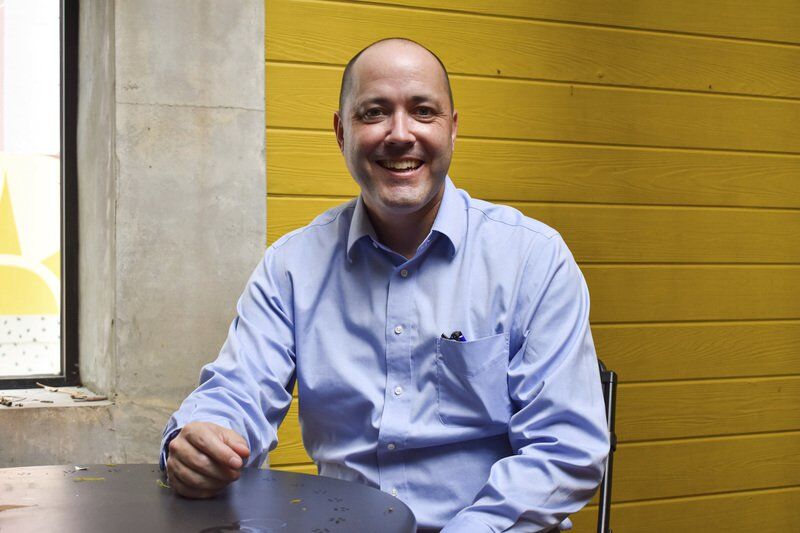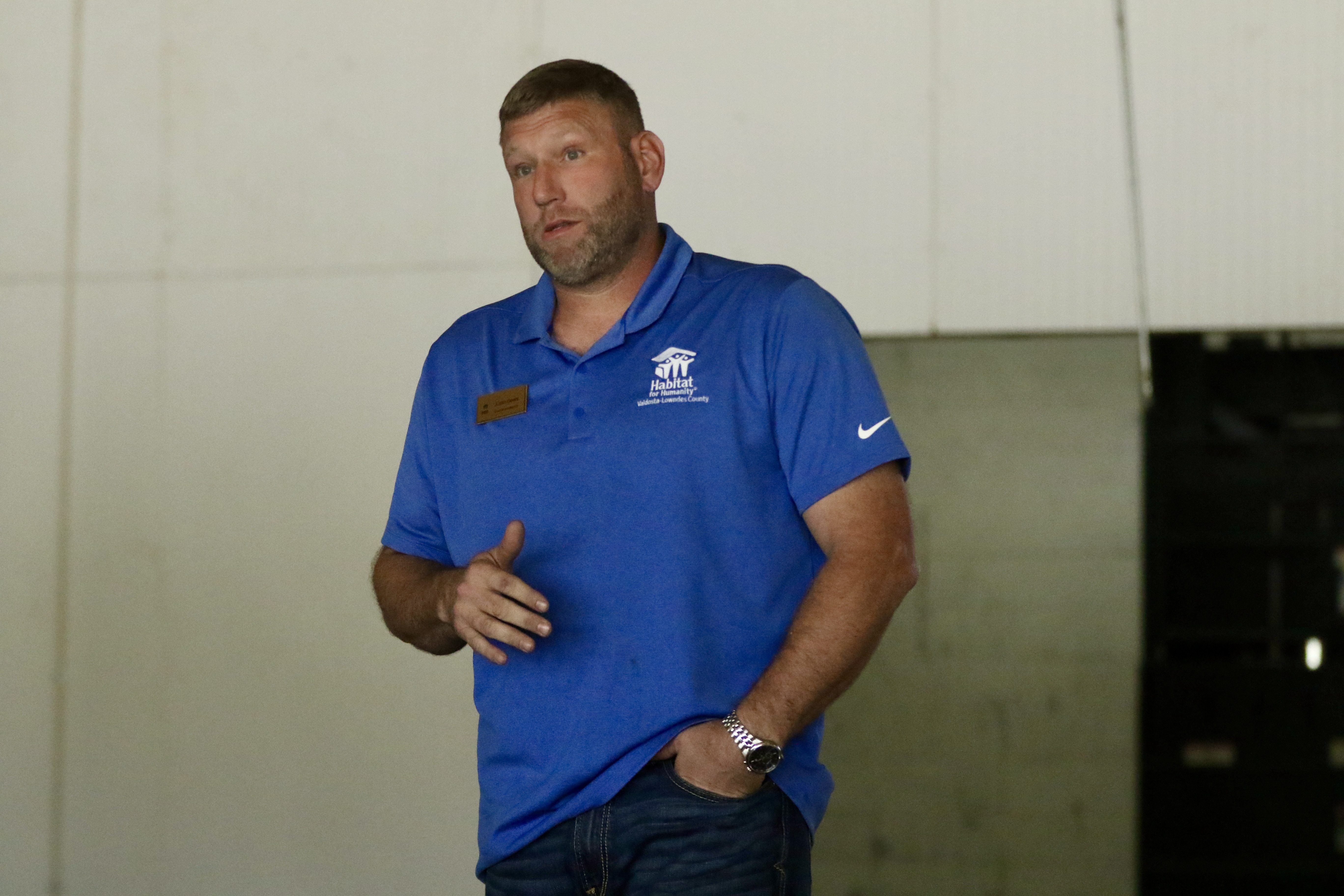AG tackles human trafficking
Published 6:00 am Saturday, June 26, 2021

- Bryce Ethridge | The Valdosta Daily TimesGeorgia Attorney General Christopher Carr said he and his team confront issues that span city, county and state lines. Issues include human trafficking, opioid abuse, elder abuse and violent crime/gang activity.
VALDOSTA – Georgia Attorney General Christopher Carr said his job is protecting the livelihoods of Georgians and recently that’s been taking the fight to human trafficking.
The Human Trafficking Prosecution Unit was created in 2019, and though the COVID-19 pandemic hindered its mission, Carr said it has performed two major operations.
Both were performed with the U.S. Marshals Southeast Regional Fugitive Task Force dealing with missing children, Operation Not Forgotten 1 and 2 in 2020 and 2021 respectively.
There’s also the June 22 indictment in DeKalb County Superior Court of Terry Florence on three counts of trafficking a person for sexual servitude. If convicted, he could face 25 years to life since drugs and fear were used to coerce children into sexual servitude, the AG said.
This is the result of a 2020 arrest, Operation Not Forgotten 1, where the HTPU recovered one of his victims.
“In that particular operation, we recovered around 50 children, 30-35 of which we believe were victims of human trafficking,” Carr said during a recent visit to Valdosta.
In the May-June time period, Carr said the unit rescued 20 children, 16 of whom are suspected sexual exploitation/human trafficking victims, during Operation Not Forgotten 2.
The HTPU focuses on domestic minor sex trafficking – underage children who are being bought and sold by adults. The average age trafficked are 12- to 14-year-olds.
Carr said there’s zero tolerance for this horrific crime and the hard part is catching it since the unit has to focus on the entire state rather than one area. It isn’t just an Atlanta problem, he said.
“It’s not just a Georgia issue or a U.S. issue; this is an issue that, unfortunately, is a global plague,” Carr said.
As it relates to Georgia, Carr has used his experience as a former commissioner of economic development to explain why traffickers find Georgia to be a favorable place for their activity.
It’s about the logistics network – Interstate 75, Interstate 85, the port, the airport –the same reasons why so many businesses come to Georgia, too.
“We’re good for business because we’re two days by rail and truck, and two hours by plane from 80% of the U.S. market,” Carr said. “The downside of that is criminals can use that exact same network to sell drugs, guns or human beings.”
Authorities can either stop the investment on infrastructure or stop the crime. The only real option is the latter, Carr said. It’s a crime that can often be found online causing the unit to move across the state.
With multiple cities, counties or even states involved, agency cooperation is important in fighting the crime and getting the kids home.
Carr said in some cases, the children could have been taken from their families, and in others, the family is part of the problem.
Georgia works with Wellspring Living since it gives “wraparound” services.
“If you’re talking about a child that’s been victimized somewhere between the age of 12 and 14, an important time of their life – middle school when you think about it – there’s going to be educational needs, health care needs, mental health needs,” Carr said.
Trauma care is critically important, especially at a younger age, he said. A victim’s advocate is part of the Human Trafficking Prosecution Unit.
So far in 2021, 44 children have been rescued and 122 are now targeted for rescue.
In helping them, Carr finds himself and his team tackling opioid abuse among teens.
The statewide Opioid Abuse Task Force recently looked at a 2019-20 Georgia State University study that polled sixth- to 12th-grade Georgia students.
The study found that painkillers, stimulants and tranquilizers were the three prescription drugs of highest use among students.
Nearly 20,000 students use painkillers without a doctor’s prescription and more than 15,000 use tranquilizers and/or stimulants without one. More than 25,000 students are using “other” prescription drugs.
The issue also impacts adults older than the age of 55. Half of all overdoses from the past two to three years involve people 55 and older, largely due to increased surgeries – such as back and knee surgery – that come with aging.
Carr said the task force is tackling the issue in a couple of ways.
“One, we’re filing lawsuits against the manufacturers and distributors of opioids,” he said. “Two, we’re bringing together the groups to talk about the ways we can improve.”
Carr said he worries about rural areas as they don’t have many rehabilitation centers. A lack of appropriate centers can mean people with addictions are being arrested rather than receiving appropriate treatment.
He likened the situation to former Gov. Nathan Deal’s philosophy toward creating accountability courts.
“We need to separate those that we’re mad at from those that we’re scared of and get help to those that we’re mad at,” Carr said of Deal’s philosophy.
Carr is also focusing on elderly abuse, specifically toward how scams can exploit them, physically and financially.
In the physical scam route, Carr said he’s found people offering “unlicensed personal care homes.”
“That’s literally individuals that are taking money saying ‘You can live with me, you’ll live in my house or my apartment,” but they’ll put them in an attic or basement,” he said.
These are people who need physical or mental help and they just don’t get it in these situations. Carr said his office has seen a surge of financial exploitation during the pandemic.
He said the scammers play on people’s fear of COVID-19 to talk about treatments that don’t exist or ways to jump in line on getting a vaccination quickly or saying they’re doctors needing to update personal information.
“It’s always to separate you from your money and from your personally identifiable information,” Carr said.
On average, according to state data, victims of elder fraud lose $9,175. Nearly 2,000 victims of elder fraud lost more than $100,000, according to state data.
He said the state has created an older adults consumer protection guide for older adults and their caregivers. Conversations are important for prevention.
“Talk about ways to protect yourself online, talk about scams, talk about being in control of transactions if somebody texts you or emails you or calls you when you weren’t expecting it,” Carr said. “Hang up, close the text, click out of the email – you’re in charge.”





